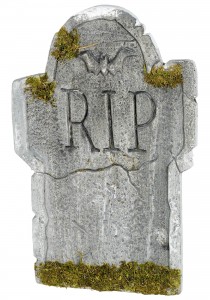 On March 15, 2016, the Louisiana Supreme Court called for public comment on the adoption of a new rule of professional conduct that would address a lawyer’s obligation to implement a succession plan in the event of “death or disability from practicing law.” See Louisiana Supreme Court Call for Comments on Proposed Rules of Professional Conduct 1.17 and 1.19 (Mar. 15, 2016). This rule was originally proposed in June 2015 by the LSBA House of Delegates. If adopted, it would provide as follows:
On March 15, 2016, the Louisiana Supreme Court called for public comment on the adoption of a new rule of professional conduct that would address a lawyer’s obligation to implement a succession plan in the event of “death or disability from practicing law.” See Louisiana Supreme Court Call for Comments on Proposed Rules of Professional Conduct 1.17 and 1.19 (Mar. 15, 2016). This rule was originally proposed in June 2015 by the LSBA House of Delegates. If adopted, it would provide as follows:
(a) Lawyers should prepare written, detailed succession plans specifying what steps must be taken in the event of their death or disability from practicing law.
(b) As part of any succession plan, a lawyer may arrange for one or more successor lawyers or law firms to assume responsibility for the interests of the lawyer’s clients in the event of death or disability from practicing law. Such designation may set out a fee sharing arrangement with the successor. Nothing in this rule or the lawyer’s designation shall prevent the client from seeking and retaining a different lawyer or law firm than the successor, and the client must be advised of that option. The lawyer to be designated must consent to the designation.
(c) A registry shall be maintained by the Louisiana State Bar Association. Each lawyer shall designate any successor lawyer on the lawyer’s annual registration statement.
See Louisiana Supreme Court Proposed Rule 1.19 (Mar. 15, 2016).
The rationale of the rule is presumably the same as a similar South Carolina rule: to serve “as an encouragement, especially to sole practitioners, to arrange for the orderly protection of clients.” See S.C. Rule of Prof’l Cond. 1.19, cmt. 1. Under that rule, a lawyer’s succession plan “should include:
- written instructions concerning how and where client information is stored;
- bank account details, including operating and trust account information;
- information concerning disposition of closed client files, law office equipment, and payment of current liabilities;
- instructions to gain access to computer and voicemail passwords; and,
- information detailing how the successor will be compensated.”
See id. cmt. 2.
This is good policy. It is curious, however, that both the South Carolina rule and the Louisiana proposal use the hortatory language “should prepare” rather than “shall prepare.” Disciplinary standards are ill-suited for nudges and suggestions; they should be reserved for mandatory rules.1 If this principle is important enough to be included in the Louisiana Rules of Professional Conduct, it is important enough to make mandatory.
The public may submit comments to: Louisiana Supreme Court, c/o Lauren McHugh Rocha, at lrocha@lasc.org. The court will accept comments through April 15, 2016. For comments previously submitted to the court by the LSBA Codes of Conduct Committee, see here.
- Granted, there are a couple of hortatory principles in the current rules. Louisiana Rule 1.5(b) advises that it is “preferable” to put a fee agreement in writing. And Louisiana Rule 6.1 suggests that a lawyer “should aspire” to provide pro bono legal services. ↵
